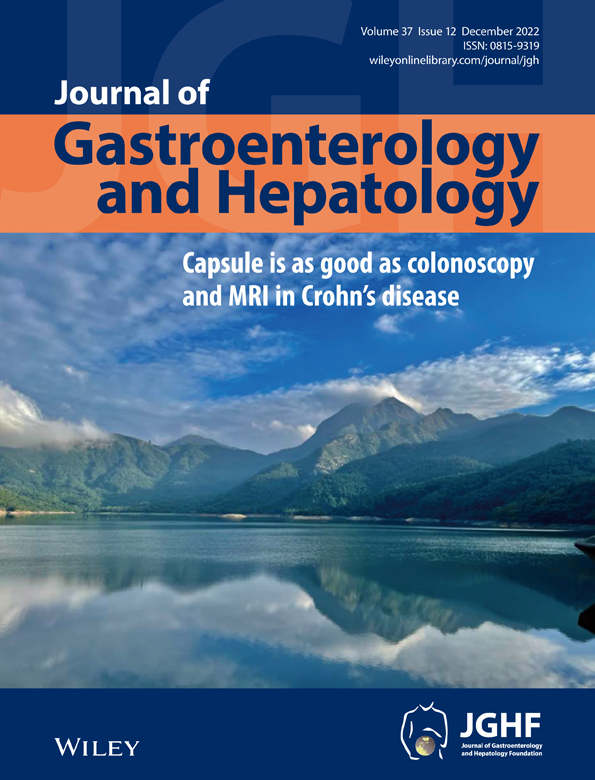Novel endoscopic ultrasonography classification for assured vertical resection margin (≥500 μm) in colorectal endoscopic submucosal dissection
Declaration of conflict of interest: The authors have no conflicts of interest to declare.
Author contributions: The study design was created by Shinji Tanaka and Shiro Oka. Clinical data collection was performed by Yuki Kamigaichi. Data analysis was carried out by Yuki Kamigaichi. Manuscript was written by Yuki Kamigaichi and Shiro Oka. All authors (Yuki Kamigaichi, Shiro Oka, Fumiaki Tanino, Noriko Yamamoto, Hirosato Tamari, Yasutsugu Shimohara, Tomoyuki Nishimura, Katsuaki Inagaki, Yuki Okamoto, Hidenori Tanaka, Ken Yamashita, Koji Arihiro, and Shinji Tanaka) read and approved the final manuscript.
Ethical approval: The study was approved by Hiroshima University's Institutional Review Board Ethics Committee (No. E-2272).
Informed consent: Written informed consent was obtained from all the enrolled patients.
Financial support: There are no sources of funding to declare.
Abstract
Background and Aim
The risk of local recurrence might be low in pT1 colorectal carcinoma with a tumor vertical margin (VM) ≥500 μm. We investigated the relationship between endoscopic ultrasonography (EUS) findings and VM in cases with colorectal endoscopic submucosal dissection (ESD) categorized as Type 2B according to the Japan NBI Expert Team (JNET) classification.
Methods
We analyzed 179 JNET Type 2B colorectal tumors resected by ESD at Hiroshima University Hospital from January 2010 to May 2021. The distance from the tumor invasive front to the muscle layer on EUS was defined as the tumor-free distance (EUS-TFD) and classified as Type I (EUS-TFD ≥1 mm) and II (<1 mm). We investigated the relationship between EUS-TFD and VM and analyzed the predictive factors for VM ≥500 μm.
Results
EUS-TFD Type I was diagnosed in 133 (74.3%) lesions: VM ≥500 μm (114, 85.7%); VM <500 μm (19, 14.3%); and VM positive (VM1) (0, 0%). Type II was diagnosed in 46 (25.7%) lesions: VM ≥500 μm (14, 30.5%); VM <500 μm (22, 47.8%); and VM1 (10, 21.7%). In the EUS-TFD Type I cases, 84.5% and 87.8% were protruded and superficial types; whereas for Type II cases, these were 38.9% and 25%, respectively. EUS-TFD classification (Type I), scope operability (good), submucosal invasion depth (<2000 μm), histology at the deepest invasive portion (favorable), and degree of fibrosis (F0/F1) were significant predictors of VM ≥500 μm.
Conclusions
In JNET Type 2B lesions, EUS-TFD classification is a novel diagnostic indicator to predict VM ≥500 μm in ESD preoperatively.
Open Research
Data availability statement
All data used to support the findings of this study are included in this article. Further enquiries can be directed to the corresponding author.




